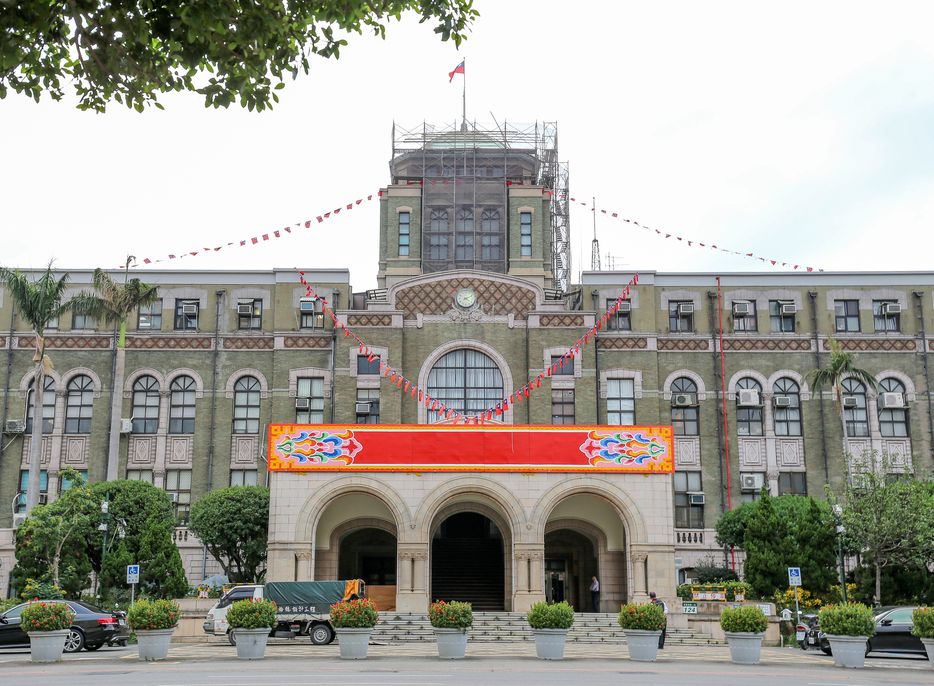Taiwan High Prosecutors' Office:
The Taiwan High Prosecutor's Office is a judicial administrative agency consisting of many prosecutors and a chief prosecutor, which represents the state in the prosecution of crimes and exercises prosecutorial authority. The prosecutors of this office are responsible for conducting public prosecutions in the Taiwan High Court, analyzing the circumstances of the defendant's crime, noting the evidence for or against the defendant, assisting the court in finding the truth, and protecting the defendant's rights.
History
The High Court Prosecutor's Office was established in 1896 during the Japanese occupation. After the restoration of Taiwan, the Ministry of Justice and Administration of the Nationalist Government appointed Mr. Chiang Hsiu as the first chief prosecutor in Taiwan on November 1, 1945, and renamed it the "Taiwan High Court Prosecutor's Office", with the authority to exercise its powers independently of the courts. On July 1, 1980, the system of separation of prosecution and trial was implemented, and the Department of Judicial Administration was reorganized as the Department of Legal Affairs, under the Ministry of Legal Affairs. On December 24, 1989, in accordance with the amendment of the Court Organization Act, the name was changed to "Taiwan High Court Prosecutor's Office" and the head of the office was renamed as the Prosecutor General at the same time. On May 25, 2018, the name was changed to "Taiwan High Court Prosecutor's Office" in accordance with Article 114-2 of the Court Organization Act.

Taiwan High Prosecutors' Office Structure
Graph made by Carrie Huang
Taiwan High Prosecutors:
There are many prosecutors in the High Prosecutors Office, with one Attorney General, nominated by the President. The Attorney-General is elected for a four-year term and shall not be re-elected. Prosecutors are assigned to groups of six or more, led by the chief prosecutor, oversee intra-group affairs. To serve as Attorney General, one shall possess at least one of the following qualifications:
- Served as a justice of the Judicial Yuan, the president of the Supreme Court, the president of the Supreme Administrative Court or the president of the Disciplinary Court.
- Served as judges of the Supreme Court, prosecutors of the Supreme Prosecutor's Office, Presidents of the High Court or Prosecutor General of the High Prosecutor's Office for at least five years.
- Served as actual judges or procurators for more than 10 years, or who have served as actual judges or procurators and judicial administrative personnel for a total of more than 10 years.

Image Source: Taiwan High Prosecutor's Office

Image Source: Bureau Of Cultural Heritage,Ministry Of Culture
The Inspector General:
The inspector general's job is to direct and supervise the national prosecutors and prosecutorial affairs:
- Determine a criminal sentence, and the person who deals with the violation of the law in the case shall have an extraordinary appeal to the Supreme Court.
- To deal with the affairs of the public to which it belongs, and may transfer the affairs of the public to which it belongs to other prosecutors.
- The Attorney-General conducts an examination of the prosecution service
- The Attorney-General personally or appoints the Chief Prosecutor or the Prosecutor to perform inspection or investigation services.
- The Attorney General convenes a meeting of prosecutors to discuss important legal issues or important matters relating to prosecutorial affairs.
The Work of Prosecutors:
- Responsible for the investigation and cases related to internal disputes, foreign crimes and obstruction of national diplomacy, etc. When the prosecutor interrogates the defendant and collects relevant evidence, they decide whether to prosecute the defendant.
- Indictment - If the defendant, after investigation by the prosecutor, is considered to be highly suspicious of a crime, the defendant will be indicted in accordance with the law and tried in court. After a judge's investigation of the evidence and a full debate, the judge will decide whether the defendant can be proven guilty of a crime. If the evidence is sufficient to prove the defendant's guilt, the judge will find the defendant guilty and impose a sentence in accordance with the law.
- Prosecution - After the defendant has been indicted, the prosecutor will be in the position of the victim and must be present in the courtroom throughout the trial proceedings to participate in the debate on the law and sentencing.
- Assist in private prosecution - Assist the private prosecutor in the private prosecution process.
- Directing the execution of criminal judgments - When the defendant is found guilty by the judge, the execution of the sentence (e.g., death penalty, life imprisonment, fixed-term imprisonment, detention, fines, etc.).